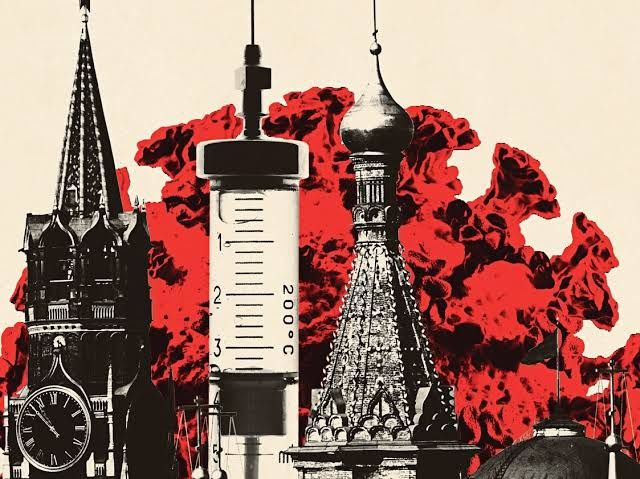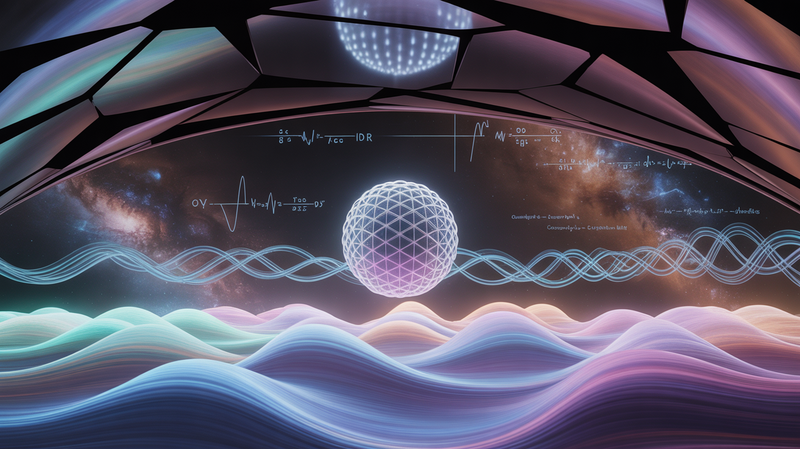Sputnik 5 to Sputnik V: A Tale of Space, Science, and Conspiracy Theories
Space, the final frontier, has long been the arena where superpowers flex their scientific muscle, and the world of vaccines appears to be no different. It's an interesting coincidence that two groundbreaking endeavors by Russia — one in space exploration and another in biomedical science — both carry the name

Space, the final frontier, has long been the arena where superpowers flex their scientific muscle, and the world of vaccines appears to be no different. It's an interesting coincidence that two groundbreaking endeavors by Russia — one in space exploration and another in biomedical science — both carry the name 'Sputnik'. Conspiracy theorists are buzzing with speculation about the potential connection between the space mission Sputnik 5 and Russia's COVID-19 vaccine Sputnik V, a coincidence that may provide fertile ground for wild conjectures.
An Era of Space Pioneers
Rewind to 1960, when the Soviet Union's Sputnik 5 mission was launched. The mission was monumental, sending the first living beings, led by dogs Belka and Strelka, into orbit and returning them safely to Earth. This mission was a significant milestone in space exploration, symbolizing humanity's determination to conquer the cosmos and learn more about the universe and our place within it.
Pandemic, Vaccine, and a Familiar Name
Fast forward to 2020, the world is reeling under the COVID-19 pandemic, a crisis that has disrupted lives on an unprecedented scale. Enter Sputnik V, Russia's answer to this global health crisis. Named to evoke a sense of national pride and scientific achievement reminiscent of the space race era, the vaccine was a significant development in Russian biomedicine.
However, the vaccine's rollout was met with skepticism, partly fueled by geopolitical tensions and partly by Russia's rush to use the vaccine on an emergency basis even before its Phase 3 trials were complete. This skepticism further deepened when Russia's actions in Ukraine tarnished Sputnik V's global image, compromising its future commercial prospects.
Between Science and Conspiracy
In the middle of these historic events, some find it intriguing that both the space mission and the vaccine carry the name 'Sputnik'. While this is likely an attempt by Russia to associate their scientific endeavors with the triumph of the original Sputnik mission, some conspiracy theorists might see this as evidence of a deeper, hidden agenda.
The conspiracy-minded might argue that the shared 'Sputnik' name signifies an obscure link between the space and biomedical ventures, seeing it as an occult pattern, a secret code, or even as the work of sinister forces. However, it's crucial to remember that such theories often lack empirical evidence and are usually based on speculation rather than facts.
The Power of Symbols
It's important to recognize that numbers, symbols, and names hold a significant place in human culture. They are used to evoke emotion, create associations, and shape perceptions. It's plausible that the shared 'Sputnik' name was a calculated move to capitalize on the historic connotation of the original space mission, portraying Russia's vaccine as another pioneering achievement.
In conclusion, while it's intriguing to explore the coincidence between Sputnik 5 and Sputnik V, it's essential to separate science from conjecture. Despite the appealing allure of hidden meanings and secret codes, it's often the simple explanation that holds true. As we navigate this pandemic, let's focus on the real, tangible scientific achievements, and not get lost in the cosmos of conspiracy theories.




